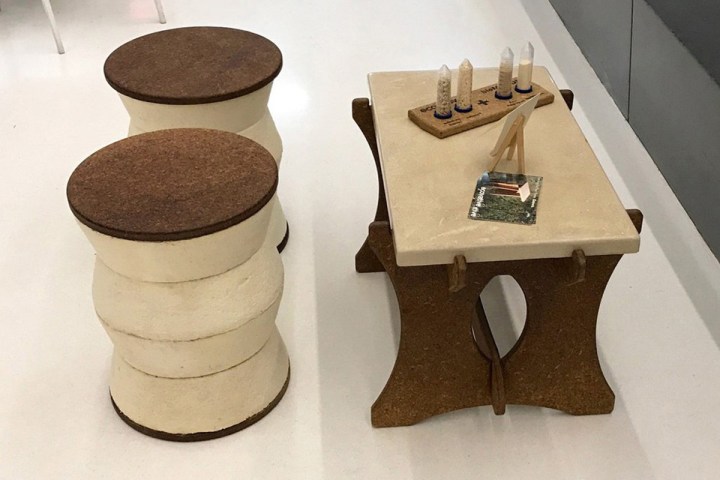
Though mushrooms in the wild are typically rubbery and slimy, these companies — the North Carolina-based bioMason and New York-based Ecovative — utilized the thread-like material which comprises much of the fungus to create chair legs and tables. Furthermore, the resulting products shown off at Biofabricate 2016 proved to be as sturdy as anything you’d find in a standard living room.
While speaking at the conference, Ecovative CEO Eben Bayer pointed to his company’s investigation of the power of biological organisms, which led to the creation of the mushroom-based furniture. Specifically, Ecovative zeroed in on mycelium, the part of a mushroom which features a host of branching filament structures. Due to its natural inclination to attach itself to various materials in an effort to foster the growth of mushroom groupings, mycelium proved capable of serving as a binding agent for other fibers such as stalks or wood.
“What we do that is unique is that we use biological organisms to literally grow our product,” said Bayer to Popular Science. “In most cases, like when you brew beer, the organism you use is thrown away at the end. But the organism is the most beautiful part. And it is part of our furniture. By changing the environmental conditions we grow it in, we can get lots of different tissue properties and structural properties.”
After first manipulating mycelium into foam while studying at Rensselaer Polytechnic Institute, Bayer knew there was much more to be made of the material. By mixing it with durable substances like the above-mentioned wood or stalk, he was able to create a finished product which showed the ability to hold up to immense pressure — or, say, the weight of someone sitting or standing on it.
“It’s really learning from nature,” added bioMason CEO, Ginger Krieg Dosier. “We can explore different shapes and different applications for this technology just by changing the size of the sand, the temperature or pH levels, and by adding colors to the mix.”
What this exploration has resulted in is a variety of diverse textures and colors, giving Ecovative and bioMason the ability to expand its mushroom-based furniture into a wider range of applications — think brick or tile-like material. Moving forward, the team hopes to continue to improve on the growing process to allow it to compete with the typical production process of furniture or building material. Once this hurdle is cleared, dramatically lowering the price is then of utmost importance.
“Biological organisms are inherently cheaper than synthetic products,” Dosier continued. “The main cost for us right now is in the manufacturing, and by modifying that and partnering with local factories, we can bring that down too.”
The companies currently offer their innovative mycelium furniture via the online store Everything Home Grown, with a stool and end table available for purchase.



